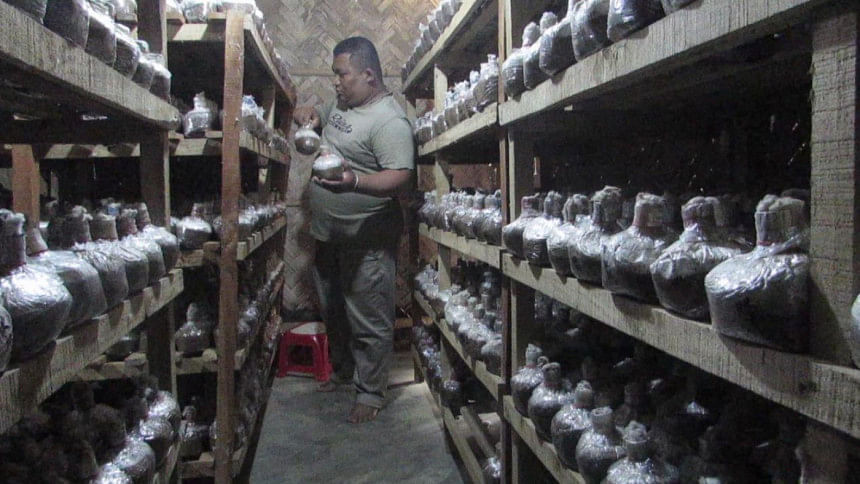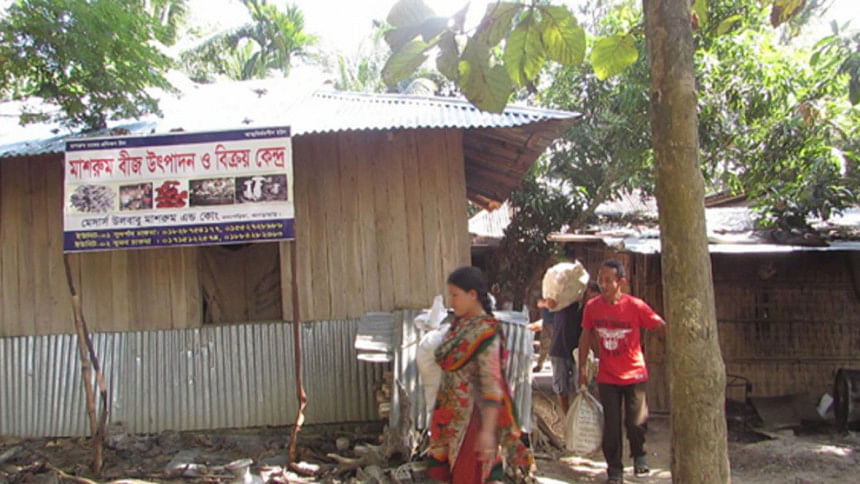An income-generating enterprise

In the quiet of a home laboratory, in Khagrachhari's Khabangparia village, a new enterprise is taking shape.
As a remedy for their own unemployment, twins Sudarshan and Sumon Chakma embarked upon an income-generating venture of an unusual kind.
They produce mushroom spores, to service the nascent but expanding mushroom farming industry.
Their business currently employs up to 400 locals.“We produce 40,000 mushroom spores annually,” says Sudarshan, “At a minimum in this district there is demand for 60,000.”Sumon Chakma first came upon the idea of producing mushroom spores while he was working as a labourer in Savar Export Processing Zone in 2011.

At the time he became acquainted with the nearby National Mushroom Development and Extension Centre, and took training there.
Upon returning home, Sumon noted robust demand for mushrooms in Khagrachhari. Thus with his brother he decided to form a company and put into practice the spore producing procedures he'd learnt.
Indeed, it being a family business, their younger sister Sraboni Chakma who is a college student also helps in the laboratory when she can.
The modest enterprise currently produces spores of a variety of oyster mushroom species, along with abalone and reishi mushrooms, the last of which is renowned for its medicinal properties.
They also produce spores of milky mushrooms, which are indigenous to South Asia.
In the marketplace and hence with local farmers two of the oyster mushroom varieties are the most popular.
As the mushroom farming season is winter, it is at this time of the year when the spore business is at its busiest, with farmers daily arriving at the door to buy.
Each spore sample is sold for Tk 23, which is a boon to farmers who previously had to pay significantly more for spores collected from Dhaka.
“I've been growing mushrooms for seven years,” says one farmer, Abahla Chakma. “It used to cost a lot to collect spores but now they are available locally and reasonably priced.
”The brothers have faced some difficulties in bringing their business to life, foremost being financial.
Banks have been unwilling to provide loans to fund expansion.
Another problem is the uncertainty of the electricity supply, which limits spore production capacity.
“With an expanded business we could offer more employment opportunities to others,” says Sudarsan.

 For all latest news, follow The Daily Star's Google News channel.
For all latest news, follow The Daily Star's Google News channel. 



Comments